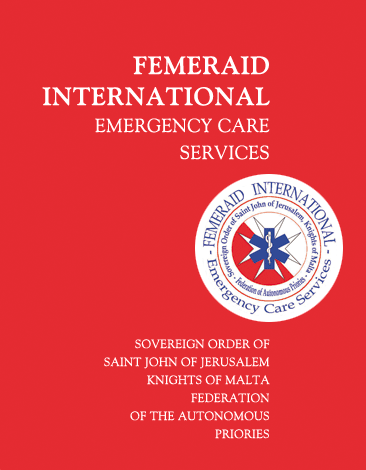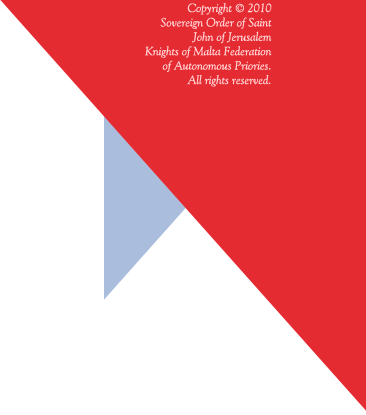The Air Rescue Team of FEMERAID International informs all our members, Knights and Dames of the Sovereign Order of Saint John of Jerusalem, Knights of Malta, Federation of the Autonomous Priories (KMFAP) about the followings:
Flu, Cold and COVID-19 survival kit for this season
1. Pain Relievers
To reduce fever and relieve body aches, keep acetaminophen, naproxen or ibuprofen on hand. However, avoid NSAIDs if you have hypertension (high blood pressure), kidney disease or diabetes. Aspirin is an alternative, but should not be given to children due to the risk of Reye’s syndrome, a rare but life-threatening condition.
2. Decongestants
Nose sprays or drops: use decongestants containing phenylephrine or pseudoephedrine to reduce nasal swelling and improve breathing. Chest balm: decongestant rubs can also help open the airways and provide relief. Cough suppressants: Dextromethorphan helps with dry coughs, while guaifenesin soothes wet coughs.
3. Hand Sanitizer
While soap and water are best for killing germs, keep hand sanitizer (at least 60% alcohol) nearby. Use it after coughing, blowing your nose, or checking someone’s temperature.
4. Thermometer
Tracking your temperature can help you monitor illness progression.
5. Face Mask
If you need to be around others, wear a mask to contain germs. A mask that covers both your nose and mouth is crucial to reducing the spread of viruses like COVID-19, flu, and colds.
6. Disinfectant Spray
Viruses like flu, cold, and COVID-19 spread through droplets. Clean frequently touched surfaces with disinfectant spray to minimize transmission of the virus to others.
7. Fluids
Illness can cause dehydration from fever, sweating and coughing. In addition to water, stock up on warm tea and electrolyte drinks to stay properly hydrated.
8. Humidifier A cool-mist humidifier keeps the airways moist, reducing stuffiness and dry coughs. It can also make it harder for viruses to thrive in the air, potentially slowing spread.
9. Zinc Lozenges, Vitamin C and Vitamin D
Zinc Lozenges: these can shorten the duration of illness by up to 40% if taken early. Vitamins C and D: both boost the immune system, which is crucial for fighting off infections.
10. Pulse Oximeter
A pulse oximeter measures the oxygen level in your blood. Although it is not necessary for a cold or flu, it is helpful if you have COVID-19 symptoms. Normal oxygen level should range from 95% to 97%. If the level drops below this, seek medical help.
16th October 2024
Dr. Nuno Gonçalo Cosmelli
Air Physician
Director of Air Rescue Service
General Secretary of FEMERAID




